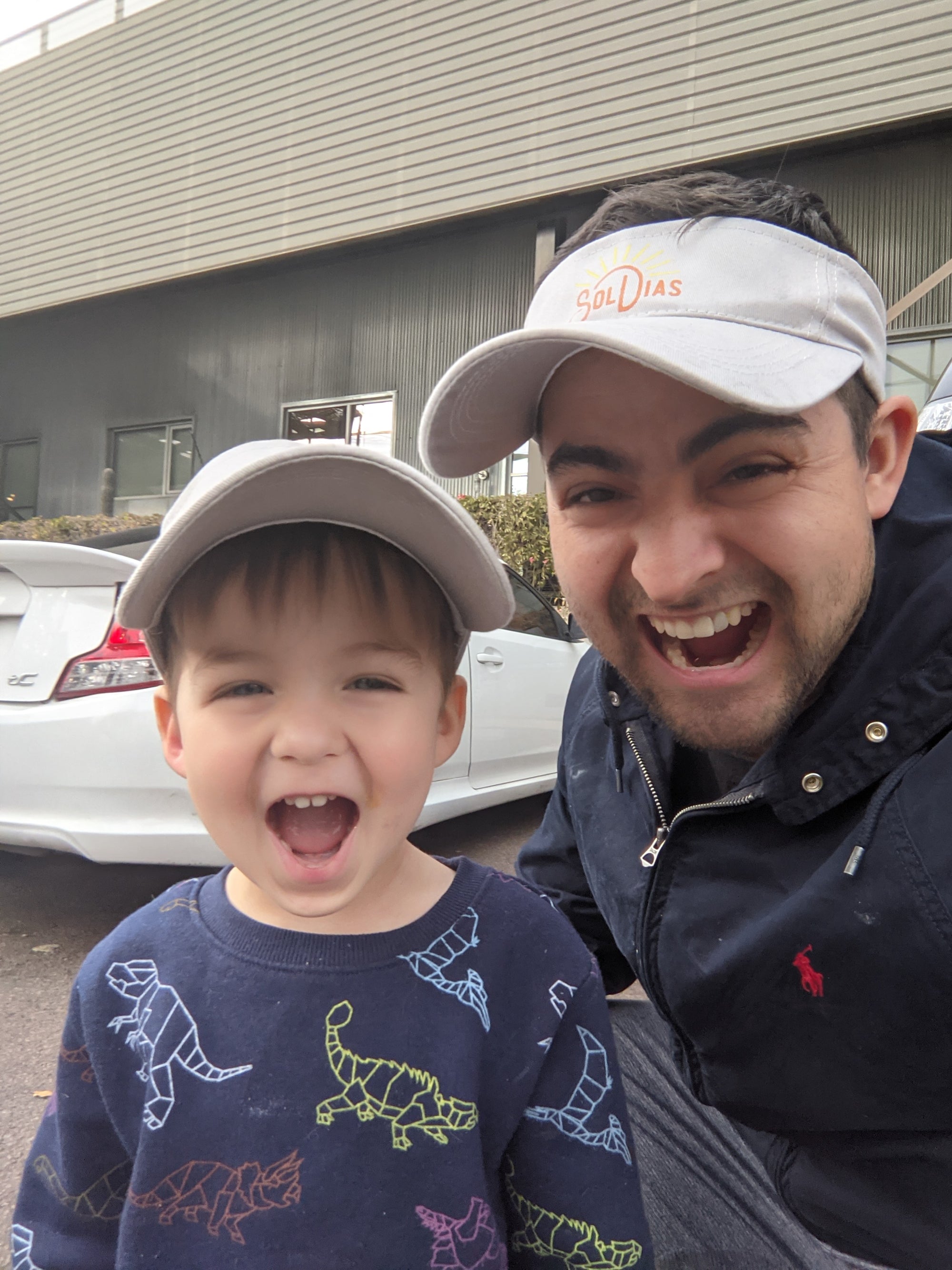

· By Victor Garcia
What being bilingual means to me. Qué significa para mí ser bilingüe.
I was born in Mexico, as were my parents, and their parents before them. Naturally, I grew up speaking Spanish as my first language. I moved to the U.S. when I was 3, but didn't truly get exposed to English until I started grade school in California. I remember at that point when I would go run errands with my mom, I was the translator. We still always spoke Spanish at home though.
After moving out of town for college, I felt my Spanish dwindling. At UTD (The University of Texas at Dallas), I spoke only English with almost all my friends, while working, and within my college courses. I missed speaking Spanish. I realized I would light up a bit more when I had the chance to speak Spanish with the guys I played indoor soccer with once a week. If my Uber driver had a hispanic sounding name or an accent, I would pick up on it and talk with them in Spanish. I felt more at ease. I changed the default language on my phone and lap top to Spanish. I guess I hadn't realized that sometimes speaking Spanish just made me feel a bit more at home, a bit more me. My culture and my upbringing is in that language.
Of course when I visit home or talk to my parents and siblings, we still speak Spanish together, but that wasn't quite enough.
I knew I wanted to start my own business one day. I wasn't sure what exactly it would be. I double majored in Accounting and Finance, so I often considered opening a Financial Services business. Little did I know I would follow in my dad's footsteps and open my own paleteria. It was natural. It was a way I could speak Spanish more and bring my culture and a part of Mexico into not only my life, but my community. I've been able to expand that even further with our online store and event venue.
What's probably been the most special of all though has been speaking and teaching Spanish to my sons. My older son is two and a half now and I talk to him only in Spanish. My wife isn't a native speaker, but she tries her best to encourage his learning with "Spanglish". It's important for me that my son stay close to our Mexican culture and language, and even more that he is able to have close relationships and speak with my family members who only speak Spanish.
Are you bilingual? If so, what language do you dream in? What language do you feel more yourself when you speak? How did you learn both languages, and will you teach them to your kids (if you have them)?
I dream in Spanish in more ways than one.
Thank you for reading
Victor with Sol Dias
Nací en México, al igual que mis padres y sus padres. Naturalmente, crecí hablando español como mi primer idioma. Nos movimos a los Estados Unidos cuando tenía 3 años, pero no me expuse realmente al inglés hasta que comencé la escuela primaria en California. Recuerdo cuando iba a hacer mandados con mi mamá, yo era el traductor. Sin embargo, siempre hablamos español en casa.
Después me fui de casa a Dallas para ir a la universidad, sentí que mi español disminuía. En UTD (la Universidad de Texas en Dallas), hablaba solo inglés con casi todos mis amigos, mientras trabajaba y en mis cursos universitarios. Extrañaba hablar español. Me di cuenta de que me sentia mejor cuando tuviera la oportunidad de hablar español con los chicos con los que jugaba fútbol una vez a la semana. Si mi conductor de Uber tuviera un nombre que sonara hispano o un acento, lo captaría y hablaría con ellos en español. Me sentí más a gusto. Cambié el idioma predeterminado en mi teléfono y computadora a español. Supongo que no me había dado cuenta de que a veces hablar español me hacía sentir un poco más en casa, un poco más yo. Mi cultura y mi educación son en ese idioma.
Por supuesto, cuando visito casa o hablo con mis padres y hermanos, todavía hablamos español juntos, pero eso no fue suficiente.
Sabía que quería comenzar mi propio negocio algún día. No estaba seguro de qué sería exactamente. Me especialicé en Contabilidad y Finanzas, por lo que a menudo consideraba abrir un negocio de Servicios Financieros. Poco sabía que seguiría los pasos de mi padre y abriría mi propia paletería. Fue natural. Era una forma de hablar más español y llevar mi cultura y una parte de México no solo a mi vida, sino a mi comunidad. He podido expandir eso aún más con nuestra tienda en línea y salon de fiestas.
Lo que probablemente ha sido el más especial de todos ha sido hablar y enseñar español a mis hijos. Mi hijo mayor ahora tiene dos años y medio y solo le hablo en español. Mi esposa no es hablante nativa, pero hace todo lo posible para fomentar su aprendizaje con "spanglish". Para mí es importante que mi hijo se mantenga cerca de nuestra cultura y lengua Mexicana, y más que pueda tener relaciones cercanas y hablar con los miembros de mi familia que solo hablan español.
¿Eres bilingue? Si es así, ¿en qué idioma sueñas? ¿En qué idioma te sientes más tú mismo cuando hablas? ¿Cómo aprendió ambos idiomas y se los enseñarás a sus hijos (si los tiene)?
Sueño en español en más de un sentido.
Gracias por leer
Victor con Sol Dias
1 comment
-
I’m not bilingual but I think this post really captures the significance and warmth of being bilingual. I appreciate how it informs your business and the impact it will no doubt have on your sons. ❤️
Jamie on
